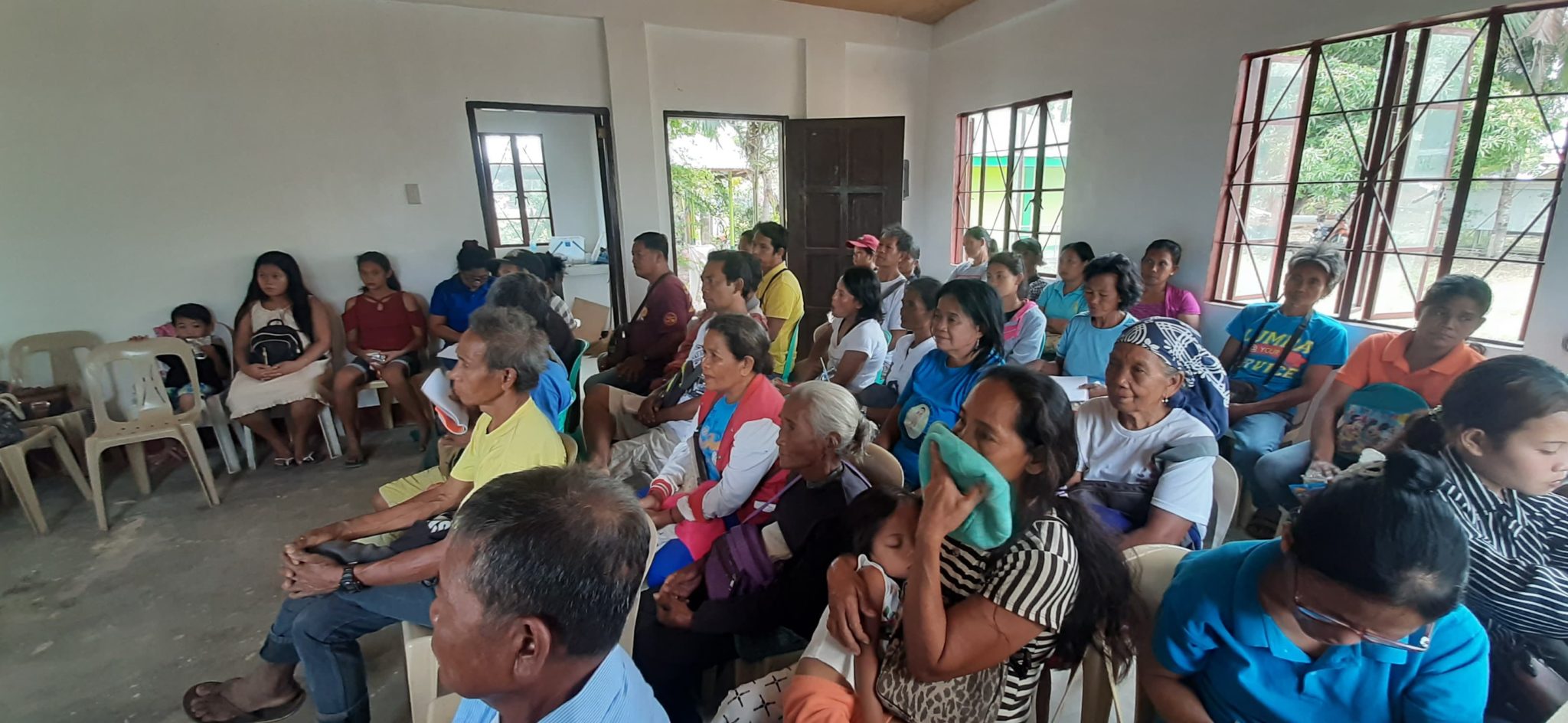Protecting ancestral land through mining data
By Adelle Chua
At a venue of a workshop on mining royalties, organized by Hivos’ Open Up Contracting partner Bantay Kita, male participants from an indigenous community in Narra municipality, Palawan (Philippines), quickly fill up the meeting room. Meanwhile, a handful of women stand on the corridor, carrying their small children. They are curious but hesitant to enter the room. “Kasali ho ba kami (Are we included)?” they ask.
During one of the sessions, facilitators organize a game and ask participants to pick out words they want to discuss. Most of the words get picked – what’s left from the stack are the words “women” and “data.”
**
Rose Ann Paragas works with Bantay Kita, an organization that supports mining communities to improve their understanding and use of data in mining contracts and pushes for transparency in royalties linked to the mining contracts. This particular community in Narra, spread out across 11 villages, is in an area where the mining company Citinickel used to operate until the Department of Environment and Natural Resources suspended their operations.
Only 4 villages out of the 11 were agreed by Citinickel to be recipients of mining royalties. Bantay Kita is supporting communities to make sure that those who are entitled to royalties, can get their fair share.
Paragas has been working with the Narra community for three years now, and has observed some changes in the way community members think and how they regard themselves. According to her, the real challenge is getting into the right mindset and changing behavior, if needed, before moving on to understanding and analyzing mining data.
The real challenge is getting into the right mindset and changing behavior, if needed, before moving on to understanding and analyzing mining data
Information is for everybody
Paragas describes the Narra community as “thirsty for knowledge,” but it’s only the community leaders who come to the workshop events. Other community members are also curious about mining arrangements between them and the company, but many don’t have the confidence to attend meetings or ask questions.
Their insecurity is rooted in a lack of education and as a result a perceived inability to understand various mining concepts.
In indigenous communities, men and women still do not enjoy equal status. Men make the important decisions while the women do the housekeeping and care for the children. This has discouraged many of the women in the communities to stay informed about mining and how they are affected.
“Whenever I notice leaders monopolizing discussions, we try to change the workshop design so others can share experiences as well,” says Paragas. The approach has worked for at least some individuals who had refused to speak up at previous meetings but have since been encouraged to express their opinion.
Knowledge breeds empowerment
To get there, Bantay Kita has come up with illustrations that explain mining concepts: free prior and informed consent, royalties, different mining stages, the involvement of the community in each stage, and eventually resource governance.
With knowledge comes the confidence to ask more questions, and eventually to demand accountability.
“If there is demand from the community, it would be easier to advocate for accountability in mining issues with authorities higher up,” Paragas says.
A bill currently pending in the Senate will require all mining companies to publish their information through the Philippines Extractive Industries Transparency Initiative (EITI). If this bill becomes a law, mining companies will need to be open with their reports, from agreements to contracts that detail how much they are paying local governments.
To go anywhere, start from home
Providing knowledge to mining communities means more than bombarding them with technical terms, economic data and difficult-to-comprehend concepts. To truly work alongside these communities and include them in the process towards change, you need to start with the idea of protecting the ancestral land and the environment, and of love for family, and of the need to secure your future.
“Before we introduce our tools, we start with the basics,” Paragas says. “It must be clear to them: Why are we doing this? Why do we need to ask questions to mining companies and demand accountability?” Otherwise, she says, she can have discussions on the value chain, on the EITI, on resource governance, but people will not be able to relate.
“So, what we do, we talk about the Indigenous Peoples’ Right Act (a Philippine law that guards indigenous people’s rights), and start with people’s firsthand experiences of it. So far this has been working,” Paragas says.
“Our organization has a definite project period, and one day we will not be here, so they must spread the word to other community members, including younger ones,” Paragas says. Being able to grasp the different mining concepts gives indigenous communities the capability to analyze mining data, and to challenge their local governments and mining companies. Hivos believes anyone should be free to challenge the established order, which is why the work of Bantay Kita has been so important.
To truly work alongside these communities and include them in the process towards change, you need to start with the idea of protecting the ancestral land and the environment, and of love for family, and of the need to secure your future.





